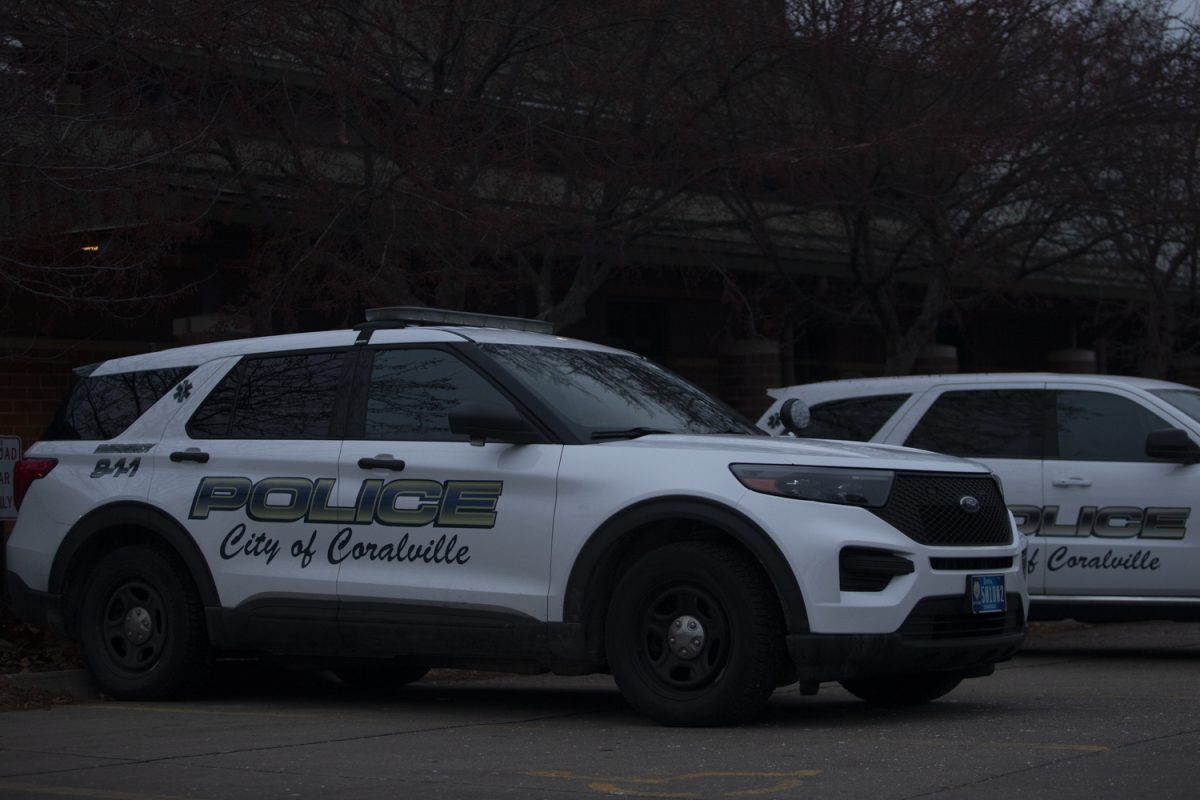New data presented to the Coralville Police Advisory Board suggests racial disparities in Coralville police traffic stops — particularly among African American drivers during the day.
The most notable findings were that non-white people are 30 percent more likely to get a citation, while white people are 40 percent more likely to get a warning. People in minority groups are nine times more likely to be arrested after a traffic stop.
The study was conducted by St. Ambrose criminal justice and sociology professor Chris Barnum who analyzed several factors of traffic stops such as stops in the day compared to at night, what type of violations were documented, and several citations.
Raw data from the census compared with the number of traffic stops made in Coralville also correlate with a disparity in traffic stops, particularly among African Americans.
Police Review Board member Guillermo Morales said while police discretion is beneficial, he said the data shows a possible gap in empathy for people who do not look like the officers.
“I think the research shows that there’s an empathy gap when you’re dealing with somebody who doesn’t look like them,” Morales said. “We tend to be more empathetic toward those that are like us.”
Police Review Board Chair Kathy Hotsenpiller said it is important to understand the discretion officers have, and that they are not trying to only penalize one group of people.
“I think it’s important for people to know that your officers do think about the person they’re stopping as a human, and aren’t just looking to penalize them,” Hotsenpiller said.
White individuals make up 69 percent of Coralville’s population but only account for 56 percent of the traffic stops. African American individuals make up 16 percent of Coralville’s population and accounted for 28 percent of the traffic stops.
Values greater than one indicate a disproportion in the amount of people being stopped based on their race. The study found 1 to 1.5 as being benign, 1.6 to 2 in need of monitoring, and greater than 2 as concerning.
During the day in 2023, the weighted average on the disparity index is 1.9. This average comes from five specific streets: Boston Way, Fifth East and Fifth West Streets, First Avenue, and the Oakdale Boulevard intersection with 12th Avenue.
Coralville Chief of Police Shane Kron said the issues at play are broader than what data can sometimes represent, but maintaining policing goals and training is something essential in helping to reduce disparities. Kron added that Coralville police will follow the recommendations of the study and continue to monitor for racial disparities.
“It’s a much bigger picture than the simple report about the race of the drivers that we stop. We just want to make sure that we remain consistent in our goals and objectives but that we also
don’t ignore who we’re stopping,” Kron said.
Compared to 2021, the weighted average on the disparity index from the same five locations was 1.5, showing a 0.4 increase.
Data from traffic stops at night show a slight increase in the weighted average of racial disparities from 2021. In 2023 the weighted average was 2.3 on the disparity index compared to 2021’s 2.2.
The study recommends that Coralville police continue monitoring for potential disproportionality.
While white drivers are more likely to be stopped for moving violations, the study found there was a higher likelihood that non-white drivers would receive a citation compared to white drivers.
White drivers were 40 percent more likely to receive a warning when stopped.
After analyzing these findings, the study had three recommendations:
- Continue to monitor traffic stop data for disproportionality.
- Evaluate arrests to determine if the defendant can be issued a summons, or a requirement to appear in court, rather than jail time.
- Reconsider traffic stop policy as 86 percent of traffic stops are made for violations officers do not deem worthy of a citation.
Iowa mandates officers receive implicit bias training as part of the police academy. Kron said CPD also does yearly implicit bias training for all its officers.
Kron said Coralville Police Department reviews each stop to evaluate why an officer decided to pull someone over. Kron said that the race of the driver does not play into the decision to conduct a traffic stop instead of the violation that occurred.
“We don’t ignore what the traffic data study is telling us, but we don’t let that be why we stop or don’t stop dangerous driving,” Kron said. “We need to stay focused on what’s the violation and what our goals and objectives are to get everybody home safely.”



